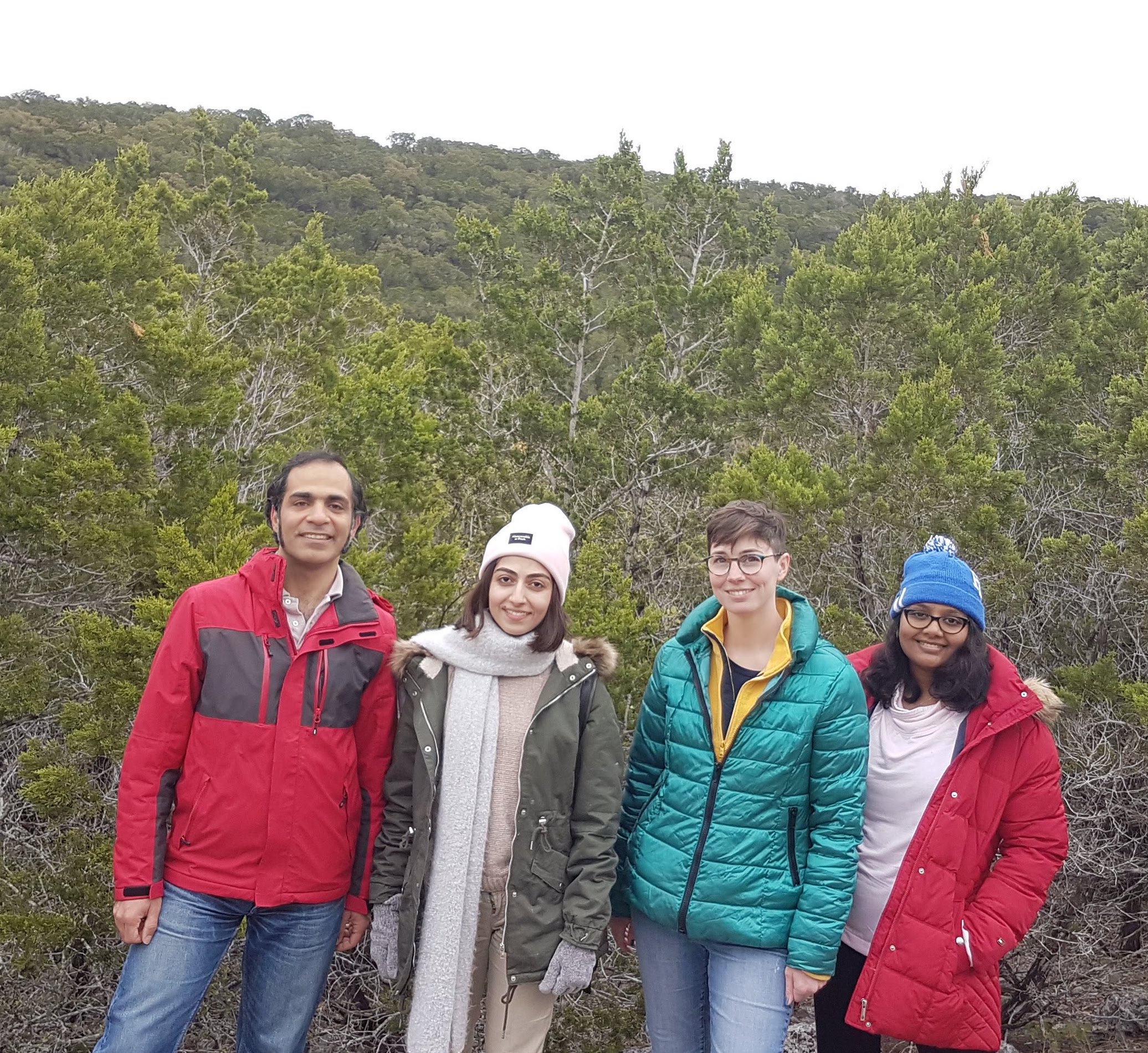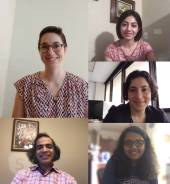Table of Contents
Welcome to the Oncinfo Lab!
Oncinfo is a research lab at the University of Texas Health Science Center at San Antonio . The focus of our projects is on bioinformatics and computational biology. We develop and apply sophisticated machine learning algorithms to analyze large biological, or clinical, data sets. From these complex data, our goal is to infer useful information that provides insight into biology, or leads to clinical applications. Oncinfo contributes to neuroscience through collaboration with The Glenn Biggs Institute for Alzheimer's & Neurodegenerative Diseases. Also, several cancer research projects are defined in collaboration with the Department of Cell Systems and Anatomy. Our external collaboration include the British Columbia Cancer Agency, which has a great research reputation in oncology around the world. Oncinfo welcomes further collaborators from related disciplines such as medicine, molecular and cellular biology, pharmacology, computer science, and statistics. We are particularly interested in collaboration with R&D departments of top pharmaceutical companies.
List of projects
Current and former lab members

Photos: Habil and Shiva 2022, Raheleh's good bye lunch 2021, Lost Maples 2019, Cave 2017
- Shuvabrata Saha (graduate student, left in 2014)
- Rupesh Agrahari (graduate student, 2014-2016, Update: Software Developer at Crossvale Inc in Dallas)
- Dr. Amir Foroushani (Postdoctoral Associate 2015-2016, Update: Computer Scientist at Laboratory of Immunology, NIAID, NIH)
- Vignesh Kuppa (volunteer graduate student in 2015)
- Jessica Zavadil (MD/PhD student in Dr. Christi Walter's lab at UTHSCSA, graduated in 2016)
- Aamir Zainulabadeen (Visiting undergraduate student in summers 2016 and 2017 from Princeton University)
- Philip Yao (Visiting undergraduate student in summer 2016 from the University of Michigan, software engineer at Amazon)
- Hanie Samimi (graduate student, graduated in 2018. Updates, 2019: PhD student at Texas State University, 2021: MSc student in architecture at the University of Utah)
- Bryan Shaw (graduate student, left in 2017)
- Gabriel Hurtado (undergraduate student 2016-2017)
- Allison Yang (2017 Summer Camp high school student)
- Angela Zhang (2017 Summer Camp high school student)
- Shilpita Mitra-Behura (2017 Summer Camp high school student)
- Ghazal Ebrahimi (Volunteer undergraduate student from Sharif University, 2018-2020)
- Dr. Isha Mehta (Postdoctoral Associate, 2019-2022, Update: Research Scientist at the University of Pittsburgh School of Medicine)

- Dr. Meghan Short (Postdoc Associate 2019-2020, Update: Postdoctoral Associate in Huttenhower Lab at the Broad Institute, Update: Statistician at Tufts Medical Center)
- Shiva Kazempour (Visiting Scientist 2019-2021 and PhD student since 2022)
- Dr. Raheleh Roudi (Visiting Scientist 2020-2021, Postdoctoral Associate in Song Lab at University of Minnesota Twin Cities, Update 2022: Research Scientist in the Department of Radiology at Stanford University)
- Mehdi Manshadi (Guest PhD student 2020, Thesis )
- Dr. Mohsen Sharifi Tabar (Senior Research Scientist since 2022)
- Javad Razavian (Volunteer Researcher since 2022)
- Alan Shaji & Mia Wallace (High school students in the 2022 Northside summer program)
- Dr. Sogand Sajedi (Postdoc Associate 2022-2023, Update: Postdoctoral Associate at the MD Amderson)
- Azad Khosh (PhD student since 2024)
- Aleena Shaji (High school students in the 2024 Northside summer program)
- Arnav Shandilya (High school student working on dementia detection using acoustic data)
To help flatten the COVID-19 curve, we worked from from home during the pandemic. This is the full list of the things we do to increase efficiency and to maintain mental health when working from home.
Open positions
Research assistantship and postdoctoral opportunities are available in the Oncinfo Lab. See the 2018 [pdf] and 2019 [pdf ] advertisements for more details on the postdoctoral position, and also if you are interested in joining the lab as a graduate student. PhD applicants must be strong in machine learning and knowledgeable in molecular biology to be successful in multidisciplinary research as illustrated in our exemplar papers. Even if the application deadline is passed, strong applicants with a masters degree may start immediately as a visiting scientist with possibility of joining the PhD program within a year. There are also some opportunities to apply for postdoctoral fellowship awards. Experienced postdocs can be promoted to an Instructor and then a Research Assistant Professor position. Taking an R test is essential in the interview process. Also, be prepared to play Minesweeper during the interview.
Computational resources
To run our in silico experiments, we use several resources provided by The Texas Advanced Computing Center (TACC) e.g., Lonestar , which is a computing system with over 30,00 cores, and Stampede, which is one of the 10 top supercomputers in the world with 10 petaFLOPS dedicated to scientific research. Secure HEPA compliant resources at TACC include Hikari, which has 10K cores and is connected to Corral with a capacity of 15 PBs. We have also access to NSF-supported XSEDE recourses including Jetstream.
Educational services
- The “Bioinformatics for biologist workshop” is a practical introduction to some basic bioinformatics tools for audience with little computational skills. Slides are available from the workshop page. Additional resources are listed at “How to begin learning bioinformatics?”
- The Slides for Habil's hands-on workshop in the 2019 Neurepiomics Course.
How to
Please feel free to use and contribute to our How to page, which is a list of miscellaneous solutions for data analysis and other challenges in computational biology.
For members
Location:
2.030V, UT Health San Antonio, 7703 Floyd Curl Drive, San Antonio, TX 78229